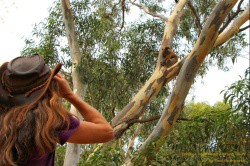
Viewing wild koalas in the You Yangs near Geelong (photo Echidna Walkabout)
For details of this conference please visit https://www.wildlifetourism.org.au/blog/events/wildlife-tourism-conference-geelong-2015/
- All participants please complete this short online survey so we can keep improving. Please include any comments at all and you only need to include your name if you wish us to contact you.
Conference Program with link to specific abstracts
back to main conference page
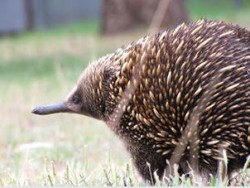
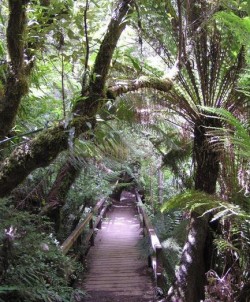
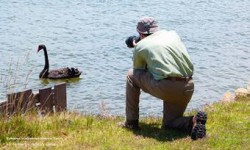

For further details of this conference please visit https://www.wildlifetourism.org.au/blog/events/wildlife-tourism-conference-geelong-2015/
.Mercure Hotel Geelong, Victoria
Thank you to our principal partner Tourism Victoria
Wildlife and nature are two of the biggest drawcards for tourism in Australia.
Interest in genuine wildlife tours is expanding rapidly.
- But how are the wildlife, the environment and the industry coping with the increased demand for high quality natural experiences?
- Can other countries show us the best way to enjoy and protect our unique wildlife resource?
- Can other countries learn from us?
- How do we define the benefits of wildlife tourism to regional communities?
- How do we ensure that wildlife tourism present and future truly benefits biodiversity and local communities?
These were the big questions this conference addressed and we will be adding more information, presentations etc to this website as soon as we can. See updates for more
We can make the world a better place for people and for wildlife. Wildlife tourism is an important aspect of tourism, often offering experiences unique to the area visited (in a way that hotel rooms, massage etc., no matter how good, cannot usually provide). It includes viewing birds, whales, butterflies, kangaroos and other wildlife behaving naturally in their own habitats in the wild, well-run captive situations with native and other animals, and other wildlife experiences that can grab the imagination of all tourists or appeal to the specialist. It has the potential to provide employment in regional areas, stimulate local economies by encouraging tourists to spend an extra night (or week ), and support conservation by restoring or protecting habitat, breeding rare species, contributing financially or practically to conservation and research projects, or providing quality public education.
The Conference
“Wildlife Tourism: A Force for Biodiversity Conservation and Local Economies?” See program for more information about presentations and presenters. The important major themes were :
- International aspects
- Contributions of tourism to conservation
- The value of wildlife tourism to local economies
Venue, Accommodation and Transport Mercure Hotel in the Geelong CBD – about one hour drive from Melbourne was a great venue particularly with their newly renovated function centre.






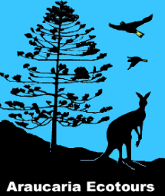






I am very much interested in any information or news on any upcoming conferences. http://erc.uonbi.ac.ke/
We are very interested to collaborate with you.
Hello Ronda, am interested in coming along because I do want to grab this opportunity to explore and see the beautiful things nature has given us. I do visit wildlife conservation here in Africa and I think its high time I explore out of Africa
I think there’s a lot that Africa and Australia can learn from one another (I’ve just been to two conferences in South Africa, and seeing some wonderful African wildlife), so that would be excellent if you can make it. We’re now extending the earlybird discount deadline for a coupe of weeks, if you’d like to register soon.
Lets all encourage the passion in protecting wild plant and animal species and their habitats to ensure that nature will be around for future generations to enjoy and to recognize the importance of wildlife and wilderness lands to humans and other species alike. Thanks a lot for sharing.
I totally agree Joseph! I hope we all come away from the conference with lots of new ideas for making that happen!
Hi Ronda, thanks for the update. Unfortunately I had tours booked for this period long ago. Do you have the details for next year’s conference yet?
Hi Mike
What a pity. We would have loved to see you there
Next year ‘s event will be late 2016 in Adelaide, probably at University of South Australia in the city, but Cleland’s Wildlife Reserve in the Adelaide Hills has been suggested as a possibility (which would be a great place, with free-range animals and surrounded by bushland, if there is suitable accommodation nearby: they are Wildlife Tourism Australia members and we have had a one-day workshop there some years ago)
Cheers
Ronda
Sorry, I erroneously said “university of Kenya” in my earlier comment. It should be instead “University of Eldoret, Kenya”
I would love to hear your presentation, and your information and ideas during discussion sessions, and wish we had a bit more money available. We do have some generous sponsors but still need more assistance, and fares from Kenya are not cheap. We are already trying to get enough funding to bring another Kenyan speaker (from the Big Life Foundation) to speak at the conference. We will see what happens in coming weeks.
Let me know if you have a possibility of getting funding from your end. I’d be happy to send a letter of invitation if that would help.
btw, do you know Daniel Sambu of the Big Life Foundation in Kenya? We have achieved partial funding for him, and he will be one of our keynote speakers
I am a Lecturer at University of Kenya and a professional in tourism and wildlife management.The Conference is very relevant to my country and to me as well. I would like to share with the conference participants on Kenya’s experiences in wildlife tourism, particularly knowing that Kenya banned hunting in all its forms 38 years ago and has experimented on wildlife tourism development on public, community and private lands. Kenya has also promoted policy and legislation to ensure that wildlife tourism is sustainable.
I shall prepare a full conference paper.
I would appreciate getting a sponsorship to attend the conference. Yours assistance would be highly appreciated.
Thank you.
Jim Kairu
We have a lot of people asking for financial assistance and unfortunately can simply not help them all in this way. We can provide letters of support to help them in their search for funding, but have very limited funds ourselves. I hope you do find a way to join us.
If there are some benefactors out there willing to assist with funding for as many people as possible to get together and discuss these very important issues, please let us know.
I am a tour guide and considering attending
vanessa
We would like to get as many tour guides as possible attending. It’s a great opportunity for tour operators, academic researchers, tourism promoters and conservation managers to all get together, understand each others’ perspectives and share ideas, information and inspirations!
Our cutoff for earlybird discount is coming up soon: 3rd July. There would also still be time to join Wildlife Tourism Australia if you are interested in doing so, and get an extra discount
The development of new city leaders networks with green thoughts and municipal authorities to invest in risk activities solutions for environmental city feeds on various sectors to environmental urbanism design and technology
That could be an interesting theme to explore. We usually think of wildlife tourism as happening outside of the cities, but of course the are some excellent wildlife parks, bushland reserves, rivers and coastlines right in some of our cities and surrounding suburbia, and the wildlife itself often choose to enter whether planned by humans or not (people from Europe and North America tend to be enthralled by our lorikeets for instance, which Aussies tend to take for granted, forgetting that not every country has such colourful birds visiting flowers in city parks and suburban gardens)
I do understand the importance of this conference and we would love to share our experience about wildlife conservation, tourism and local communities.
Please let us know if there is any sponsor we could apply for this kind of event.
Have a lovely day.
I would love to be able to help you tell us all about the excellent conservation and educational work you do at Daktari (Darren and I had a brief sample of this ourselves when we stayed with you a few years ago). We have tried for funding through Virgin Australia with no success, and will try again with others, but if other readers can suggest potential funding bodies either in South Africa, Australia or elsewhere) to help you attend that would be great.
it is good Aida , because it will grow up the experience between country to other country the same to me
This is the good opportunity for explore our natural of Kalimantan
Dr Wahyudi
Palangka Raya University, Central Kalimantan, Indoensia
Kalimantan is unfortunately a long way from Geelong, if you’re thinking of a field trip! Or are you thinking of presenting a paper on wildlife tourism in Kalimntan? That would be great, as I think there is much potential for increased wildlife tourism between Australia and Indonesia – so close to each other, both with a wonderful diversity of wildlife, and the wildlife is so very different between the two. Personally, I’ve spent a little time in the forests of Sabah (and loved it!) but never visited the Indonesian part of Borneo.